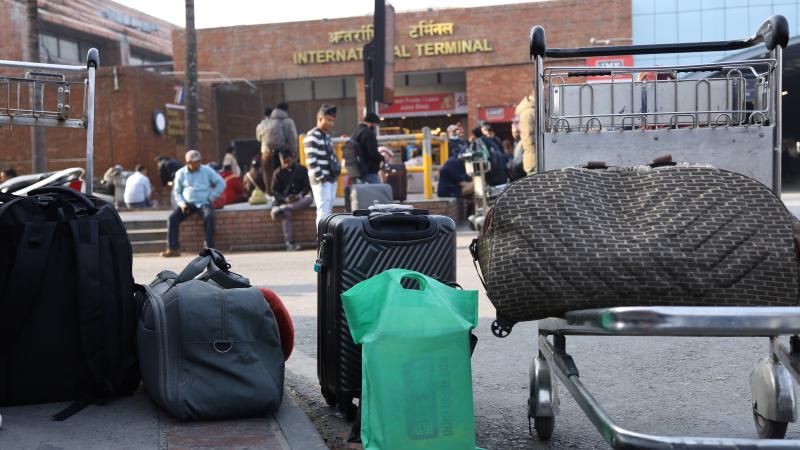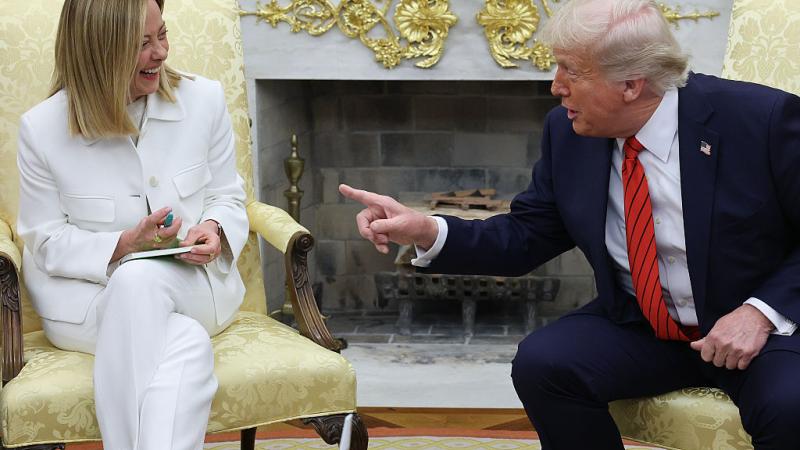US sees 3-way deal on Red Sea islands as path to normalization of Saudi-Israeli ties
Biden administration hopes to broker a deal between Saudi Arabia, Egypt and Israel for return of two strategic islands from Egypt to Saudi Arabia before the president's trip to the Middle East in late June.
The State Department has quietly been mediating talks between Saudi Arabia, Israel, and Egypt that could be a step toward the elusive normalization of relations between Saudi Arabia and the Jewish State.
According to officials, the negotiations involve the transfer of two strategic islands in the Red Sea from Egyptian to Saudi sovereignty
Tiran and Sanafir Islands control the Straits of Tiran, a strategic sea passage to the ports of Aqaba in Jordan and Eilat in Israel.
Throughout the mediation efforts, U.S. and Israeli sources have stated that Saudi Arabia agreed to keep the islands demilitarized and maintain full freedom of navigation to all ships but wanted an end to the presence of outside observers in the islands. Israeli officials have also agreed to potentially end the presence of outside observers but have asked for alternative security arrangements.
Should an agreement go through, the Israeli government also wants Saudi Arabia to take certain measures as part of broader efforts to reach a deal on several critical issues, according to reports. Israeli officials have asked that Saudi Arabia allow Israeli airlines to cross more into Saudi airspace, allowing commercial airlines to shorten flights to countries like China, India, and Thailand. Additionally, the Israeli government wants Riyadh to allow direct flights from the Jewish state to Saudi Arabia for Muslims in Israel seeking a pilgrimage to the holy cities of Mecca and Medina.
In 1950, Saudi Arabia gave Egypt control of the islands, later demilitarized as part of the 1979 Israeli-Egyptian peace treaty signed under Israeli Prime Minister Menachem Begin and Egyptian President Anwar Sadat. The Biden administration hopes to reach an agreement before the president's upcoming trip to the Middle East in late June, which could include a visit to Saudi Arabia.
In June 2017, the Egyptian government approved a deal to transfer sovereignty of the islands back to Saudi Arabia but needed buy-in from Israel because of the 1979 peace treaty. Israel approved of the transfer of the islands back to Saudi Arabia pending a deal between Egypt and Saudi Arabia on continuing to ensure that freedom of navigation in the strait remained unhindered. The deal was never finalized, and several unresolved issues remained, such as allowing multinational observers led by the U.S. to observe the strait.
Ever since coming into power, President Biden and his team have given Saudi Arabia the cold shoulder, upsetting one of America's key allies in the region and instead engaging in negotiations with Saudi Arabia's greatest rival, the Islamic Republic of Iran. Officials believe that this potential three-way deal could build trust between Israel and Saudi Arabia, creating an opening to warm relations between the two countries, both of which view Iran's regime as the greatest threat to their security and stability.
As Iran's regime continues supporting terrorist proxy groups in Yemen, Gaza, Lebanon, Iraq and other parts of the Middle East, countries like Saudi Arabia, UAE, Bahrain, Morocco, and many other Arab states have either opened or completely normalized relations with Israel to deter against the threat of Iran. When President Trump and his administration were able to negotiate the Abraham Accords between Israel, Bahrain, and the United Arab Emirates (UAE), and other Arab states, Saudi Arabia praised the agreement but indicated it would not normalize relations with Israel unless the there was progress in the Israeli-Palestinian peace process.
With the Biden administration on track to revive the 2015 nuclear deal with Tehran and economic sanctions relief on the way for the Islamic Regime, many believe that the Saudi government will change its stance and move to normalize ties with the state of Israel.















